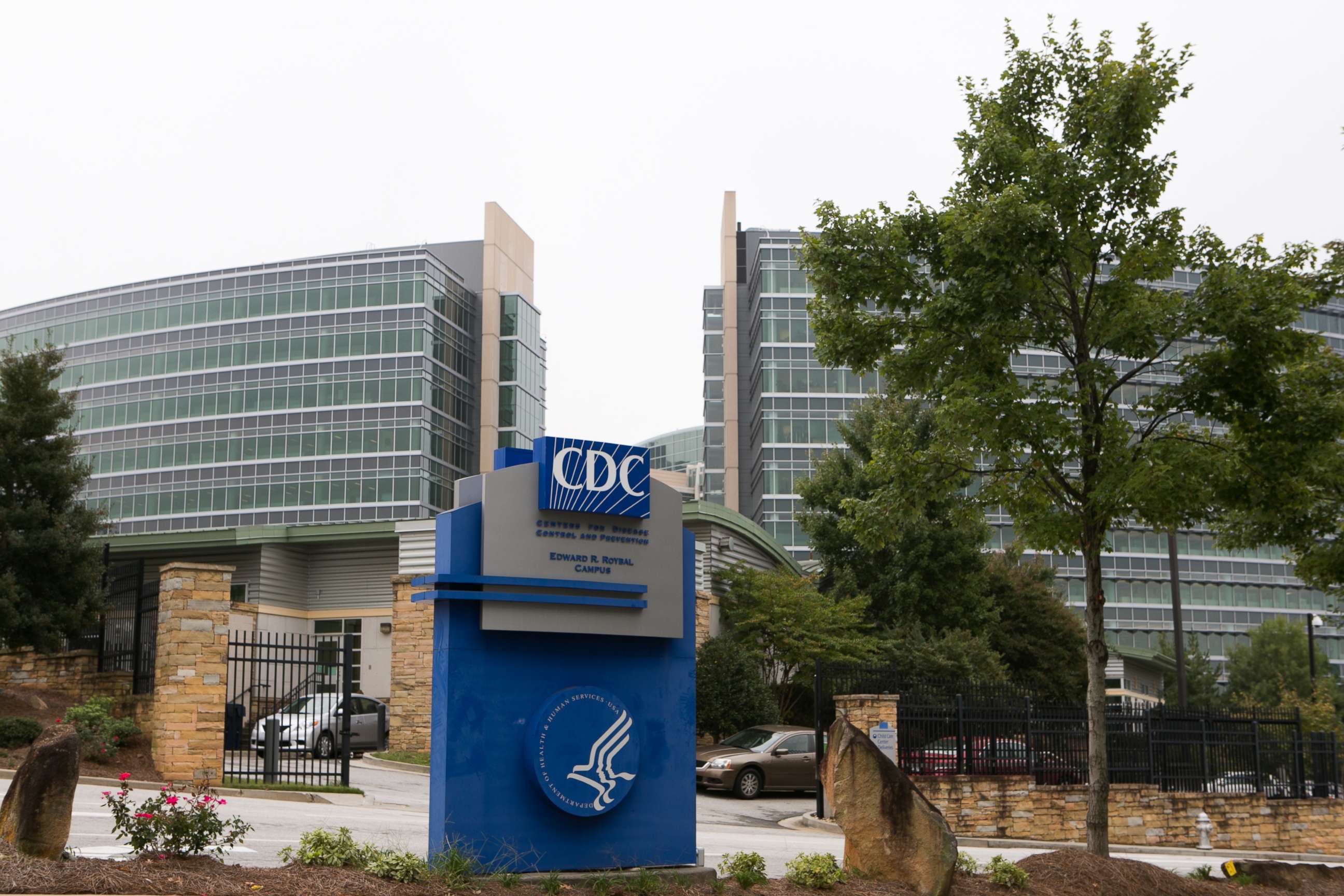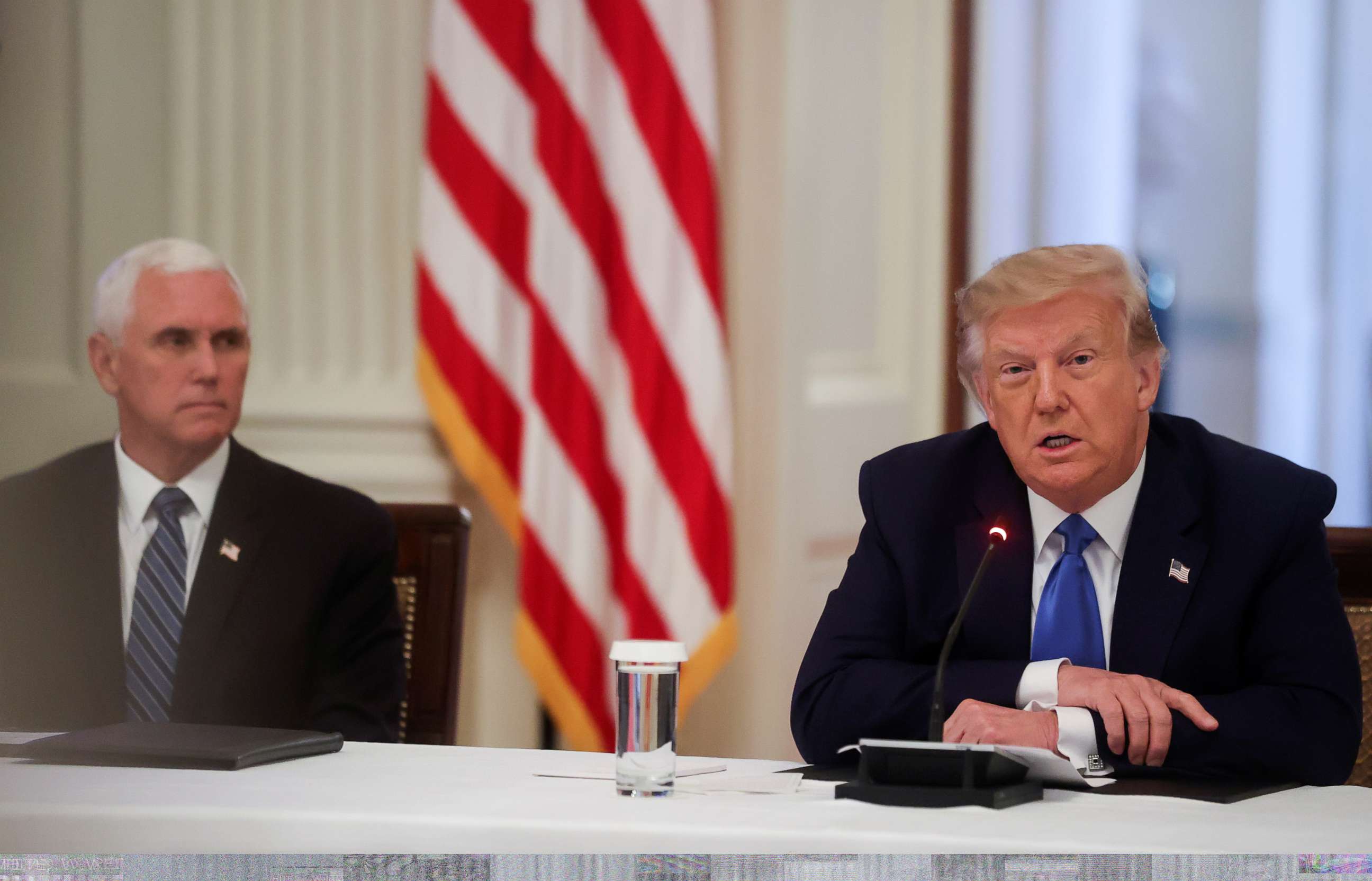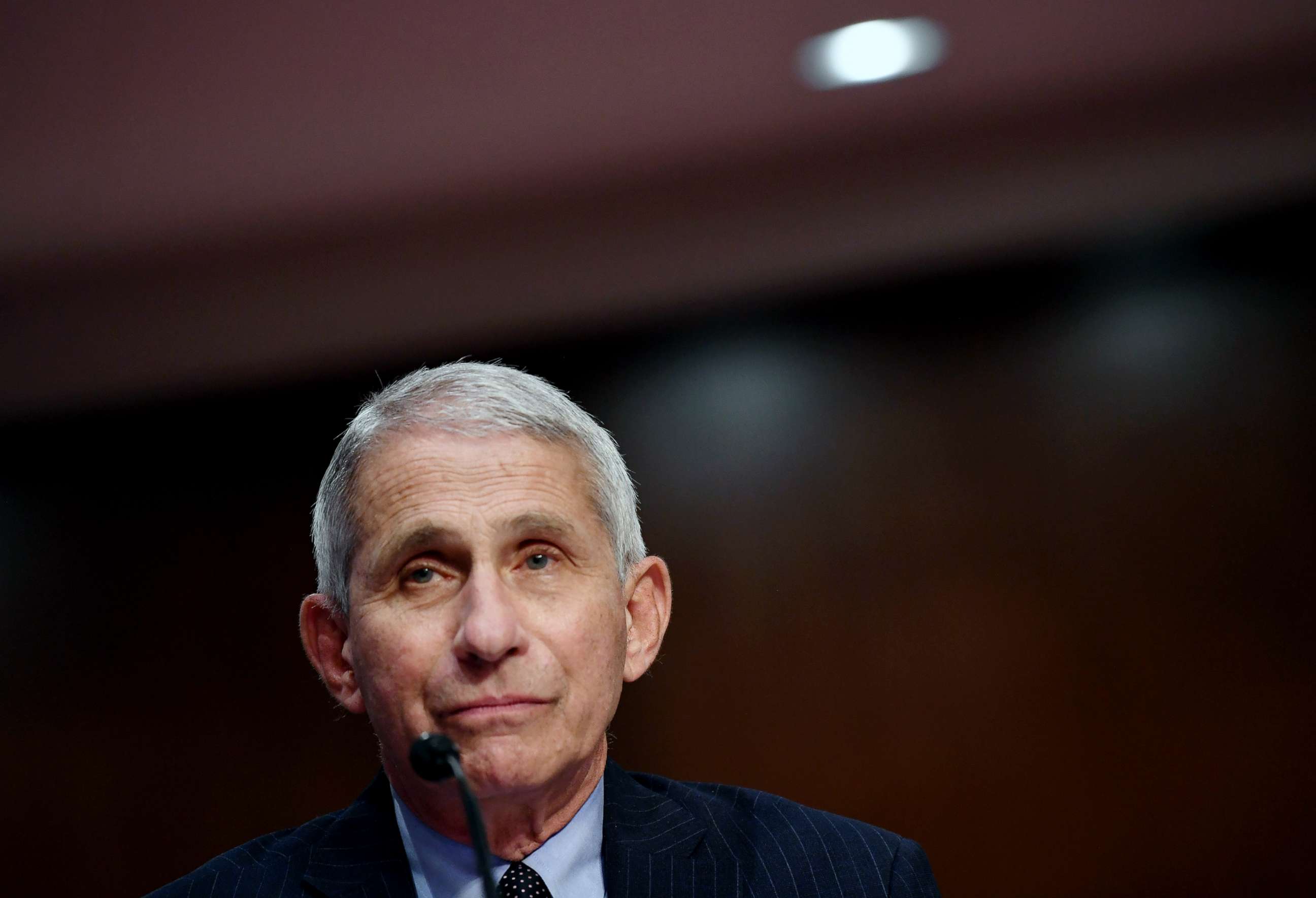Trump says he likes Fauci 'personally' after promoting tweet, without evidence, attacking 'lying' doctors
Trump's move comes amid a White House effort to discredit Dr. Anthony Fauci.
As the novel coronavirus spreads across the country -- leading to record numbers of cases and increased deaths in several states -- President Donald Trump shared a message on Twitter Monday saying doctors and the Centers for Disease Control and Prevention are "lying."
Then, after promoting a message critical of the nation’s foremost infectious disease expert, Dr. Anthony Fauci, Trump later in the day said he liked Fauci “personally.”
"The most outrageous lies are the ones about Covid 19," read a tweet written by the game show host and conservative commentator Chuck Woolery that the president shared with his over 83 million followers on Twitter on Monday morning. "Everyone is lying. The CDC, Media, Democrats, our Doctors, not all but most ,that we are told to trust. I think it's all about the election and keeping the economy from coming back, which is about the election. I'm sick of it."
Trump shared the message without comment or elaboration. There is no evidence the CDC, a federal agency, or doctors are "lying."

The president also shared a tweet disparaging Fauci.
"So based on Dr. Fauci and the Democrats, I will need an ID card to go shopping but not to vote?" Mark Young, Woolery's conservative podcast co-host, wrote in a tweet also shared by Trump, without comment.
The tweet was likely a reference to an interview Fauci did in April with CNN in which he said certificates of immunity were being discussed as a potential possibility. Immunity certificates or cards were being discussed at the time as a way to speed reopening, but in the months since the idea has lost prominence as scientists struggle to understand how immunity to COVID-19 works and amid lagging testing capabilities in the United States.
The attacks on doctors and the nation's leading infectious disease scientists, in the middle of a pandemic, came as the White House has sought to discredit Fauci, a member of its coronavirus task force.
Over the weekend, it provided a document to several media outlets that contained a misleading list of comments made by Fauci, in an effort to damage his reputation.
Fauci has found himself a target of Trump and his supporters as he paints a less rosy picture of the pandemic than do the president and his top political appointees. His approach has earned him praise from leading public health experts.
“I have a reputation, as you probably have figured out, of speaking the truth at all times and not sugar-coating things," Fauci told the Financial Times last week.

Asked Monday if he still appreciated Fauci's advice, Trump did not directly answer but said he had "a very good relationship with Dr. Fauci.
"I've had for a long time, right from the beginning," he continued. "I find him to be a very nice person. I don't always agree with him."
"I get along with him very well," Trump addd. "I like him personally."
During a press briefing earlier Monday, White House press secretary Kayleigh McEnany on Monday denied the characterization of the list provided to media outlets as "opposition research" -- a term used to refer to unflattering research political campaigns share with reporters about their opposition -- but did not deny the White House sent it.
She said the list was sent in response to an inquiry from The Washington Post, which first reported on it, and said Trump "certainly" appreciated the advice he receives from Fauci, who said last week he had not seen the president in person in over a month.
"Dr. Fauci is one of many on the task force who provides advice," McEnany said.
"There are a number of scientists who are experts in various issues, and various specialties, but the president takes the full opinions of the task force and the varying opinions sometimes and moves forward in the way he thinks is best for the country," she added.

Two senior level White House sources told ABC News that Fauci has at times been referred to among Trump aides as "Dr. Gloom and Doom."
Earlier Monday, in an interview with Fox News, McEnany pointed to comments the day before from a top official at the Department of Health and Human Services, Adm. Brett Giroir, who told NBC News that Fauci does not necessarily "have the whole national interest in mind.
“That includes Dr. Fauci's opinion, it includes Admiral Giroir’s, and ultimately those conclusions are taken to the president," McEnany said. "So Dr. Fauci's one member of a team, but rest assured his viewpoint is represented, and the information gets to the president through the task force."
Trump, facing re-election this year, is facing broad disapproval for his management of the pandemic. In an ABC News/Ipsos poll released Friday, 67% of Americans said they disapproved of his oversight of the crisis, a new low since ABC News/Ipsos began surveying on the coronavirus in March.
Fauci has had a higher approval rating than the president in national polls related to the coronavirus response.
ABC News' Katherine Faulders and John Santucci contributed to this report.
This report was featured in the Tuesday, July 14, 2020, episode of “Start Here,” ABC News’ daily news podcast.
"Start Here" offers a straightforward look at the day's top stories in 20 minutes. Listen for free every weekday on Apple Podcasts, Google Podcasts, Spotify, the ABC News app or wherever you get your podcasts.




